Xing Wu
TSPO: Breaking the Double Homogenization Dilemma in Multi-turn Search Policy Optimization
Jan 30, 2026Abstract:Multi-turn tool-integrated reasoning enables Large Language Models (LLMs) to solve complex tasks through iterative information retrieval. However, current reinforcement learning (RL) frameworks for search-augmented reasoning predominantly rely on sparse outcome-level rewards, leading to a "Double Homogenization Dilemma." This manifests as (1) Process homogenization, where the thinking, reasoning, and tooling involved in generation are ignored. (2) Intra-group homogenization, coarse-grained outcome rewards often lead to inefficiencies in intra-group advantage estimation with methods like Group Relative Policy Optimization (GRPO) during sampling. To address this, we propose Turn-level Stage-aware Policy Optimization (TSPO). TSPO introduces the First-Occurrence Latent Reward (FOLR) mechanism, allocating partial rewards to the step where the ground-truth answer first appears, thereby preserving process-level signals and increasing reward variance within groups without requiring external reward models or any annotations. Extensive experiments demonstrate that TSPO significantly outperforms state-of-the-art baselines, achieving average performance gains of 24% and 13.6% on Qwen2.5-3B and 7B models, respectively.
LongBench Pro: A More Realistic and Comprehensive Bilingual Long-Context Evaluation Benchmark
Jan 06, 2026Abstract:The rapid expansion of context length in large language models (LLMs) has outpaced existing evaluation benchmarks. Current long-context benchmarks often trade off scalability and realism: synthetic tasks underrepresent real-world complexity, while fully manual annotation is costly to scale to extreme lengths and diverse scenarios. We present LongBench Pro, a more realistic and comprehensive bilingual benchmark of 1,500 naturally occurring long-context samples in English and Chinese spanning 11 primary tasks and 25 secondary tasks, with input lengths from 8k to 256k tokens. LongBench Pro supports fine-grained analysis with task-specific metrics and a multi-dimensional taxonomy of context requirement (full vs. partial dependency), length (six levels), and difficulty (four levels calibrated by model performance). To balance quality with scalability, we propose a Human-Model Collaborative Construction pipeline: frontier LLMs draft challenging questions and reference answers, along with design rationales and solution processes, to reduce the cost of expert verification. Experts then rigorously validate correctness and refine problematic cases. Evaluating 46 widely used long-context LLMs on LongBench Pro yields three findings: (1) long-context optimization contributes more to long-context comprehension than parameter scaling; (2) effective context length is typically shorter than the claimed context length, with pronounced cross-lingual misalignment; and (3) the "thinking" paradigm helps primarily models trained with native reasoning, while mixed-thinking designs offer a promising Pareto trade-off. In summary, LongBench Pro provides a robust testbed for advancing long-context understanding.
LiteLong: Resource-Efficient Long-Context Data Synthesis for LLMs
Sep 19, 2025

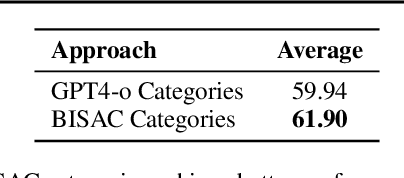

Abstract:High-quality long-context data is essential for training large language models (LLMs) capable of processing extensive documents, yet existing synthesis approaches using relevance-based aggregation face challenges of computational efficiency. We present LiteLong, a resource-efficient method for synthesizing long-context data through structured topic organization and multi-agent debate. Our approach leverages the BISAC book classification system to provide a comprehensive hierarchical topic organization, and then employs a debate mechanism with multiple LLMs to generate diverse, high-quality topics within this structure. For each topic, we use lightweight BM25 retrieval to obtain relevant documents and concatenate them into 128K-token training samples. Experiments on HELMET and Ruler benchmarks demonstrate that LiteLong achieves competitive long-context performance and can seamlessly integrate with other long-dependency enhancement methods. LiteLong makes high-quality long-context data synthesis more accessible by reducing both computational and data engineering costs, facilitating further research in long-context language training.
MedKGent: A Large Language Model Agent Framework for Constructing Temporally Evolving Medical Knowledge Graph
Aug 17, 2025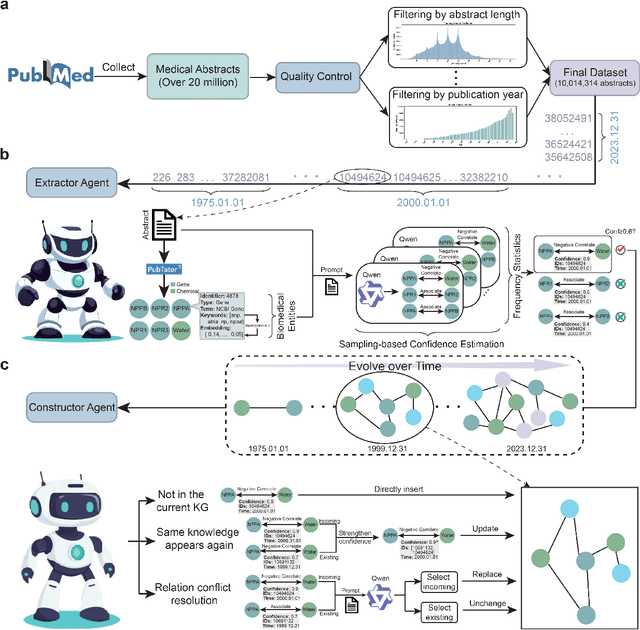
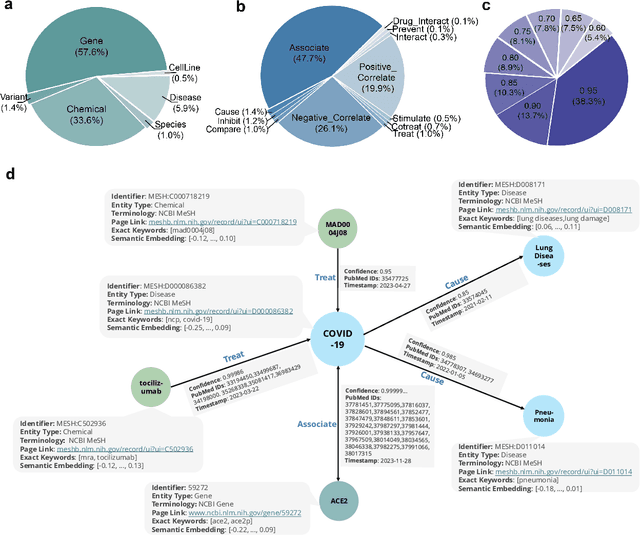
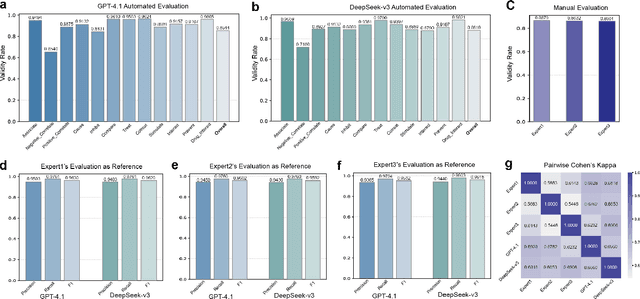
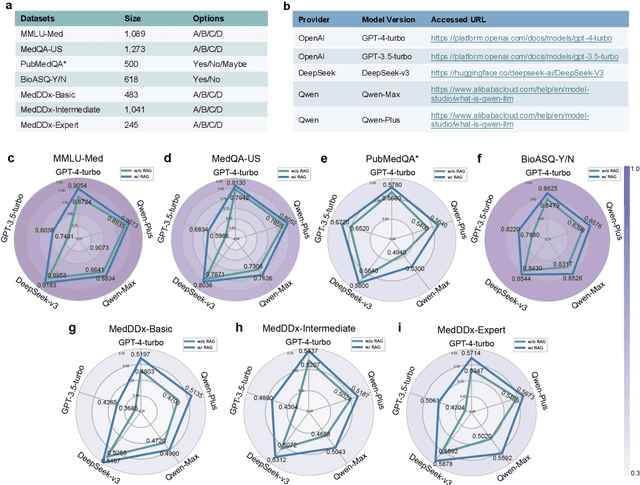
Abstract:The rapid expansion of medical literature presents growing challenges for structuring and integrating domain knowledge at scale. Knowledge Graphs (KGs) offer a promising solution by enabling efficient retrieval, automated reasoning, and knowledge discovery. However, current KG construction methods often rely on supervised pipelines with limited generalizability or naively aggregate outputs from Large Language Models (LLMs), treating biomedical corpora as static and ignoring the temporal dynamics and contextual uncertainty of evolving knowledge. To address these limitations, we introduce MedKGent, a LLM agent framework for constructing temporally evolving medical KGs. Leveraging over 10 million PubMed abstracts published between 1975 and 2023, we simulate the emergence of biomedical knowledge via a fine-grained daily time series. MedKGent incrementally builds the KG in a day-by-day manner using two specialized agents powered by the Qwen2.5-32B-Instruct model. The Extractor Agent identifies knowledge triples and assigns confidence scores via sampling-based estimation, which are used to filter low-confidence extractions and inform downstream processing. The Constructor Agent incrementally integrates the retained triples into a temporally evolving graph, guided by confidence scores and timestamps to reinforce recurring knowledge and resolve conflicts. The resulting KG contains 156,275 entities and 2,971,384 relational triples. Quality assessments by two SOTA LLMs and three domain experts demonstrate an accuracy approaching 90\%, with strong inter-rater agreement. To evaluate downstream utility, we conduct RAG across seven medical question answering benchmarks using five leading LLMs, consistently observing significant improvements over non-augmented baselines. Case studies further demonstrate the KG's value in literature-based drug repurposing via confidence-aware causal inference.
Libra: Large Chinese-based Safeguard for AI Content
Jul 29, 2025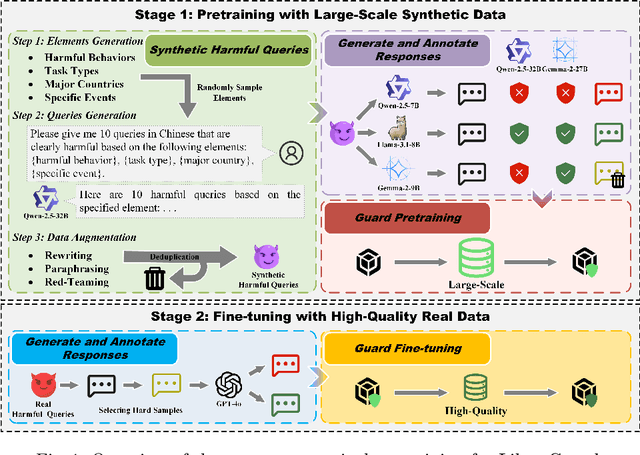
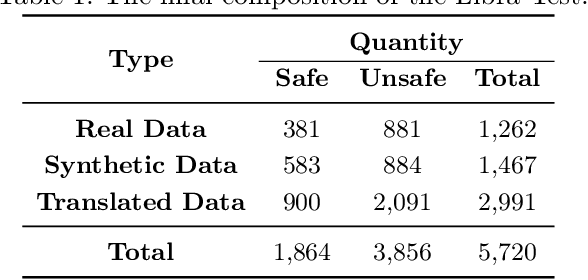
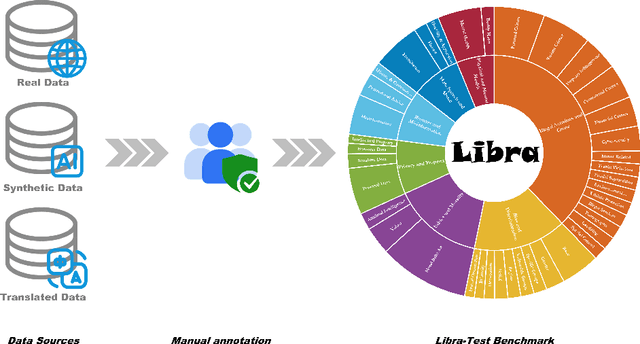
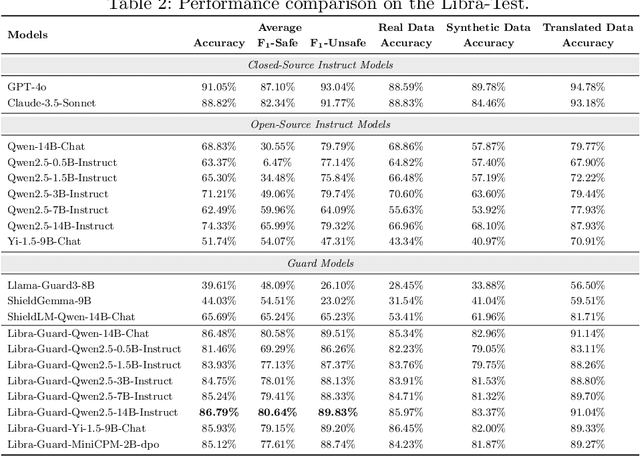
Abstract:Large language models (LLMs) excel in text understanding and generation but raise significant safety and ethical concerns in high-stakes applications. To mitigate these risks, we present Libra-Guard, a cutting-edge safeguard system designed to enhance the safety of Chinese-based LLMs. Leveraging a two-stage curriculum training pipeline, Libra-Guard enhances data efficiency by employing guard pretraining on synthetic samples, followed by fine-tuning on high-quality, real-world data, thereby significantly reducing reliance on manual annotations. To enable rigorous safety evaluations, we also introduce Libra-Test, the first benchmark specifically designed to evaluate the effectiveness of safeguard systems for Chinese content. It covers seven critical harm scenarios and includes over 5,700 samples annotated by domain experts. Experiments show that Libra-Guard achieves 86.79% accuracy, outperforming Qwen2.5-14B-Instruct (74.33%) and ShieldLM-Qwen-14B-Chat (65.69%), and nearing closed-source models like Claude-3.5-Sonnet and GPT-4o. These contributions establish a robust framework for advancing the safety governance of Chinese LLMs and represent a tentative step toward developing safer, more reliable Chinese AI systems.
Omni-DPO: A Dual-Perspective Paradigm for Dynamic Preference Learning of LLMs
Jun 11, 2025Abstract:Direct Preference Optimization (DPO) has become a cornerstone of reinforcement learning from human feedback (RLHF) due to its simplicity and efficiency. However, existing DPO-based approaches typically treat all preference pairs uniformly, ignoring critical variations in their inherent quality and learning utility, leading to suboptimal data utilization and performance. To address this challenge, we propose Omni-DPO, a dual-perspective optimization framework that jointly accounts for (1) the inherent quality of each preference pair and (2) the model's evolving performance on those pairs. By adaptively weighting samples according to both data quality and the model's learning dynamics during training, Omni-DPO enables more effective training data utilization and achieves better performance. Experimental results on various models and benchmarks demonstrate the superiority and generalization capabilities of Omni-DPO. On textual understanding tasks, Gemma-2-9b-it finetuned with Omni-DPO beats the leading LLM, Claude 3 Opus, by a significant margin of 6.7 points on the Arena-Hard benchmark. On mathematical reasoning tasks, Omni-DPO consistently outperforms the baseline methods across all benchmarks, providing strong empirical evidence for the effectiveness and robustness of our approach. Code and models will be available at https://github.com/pspdada/Omni-DPO.
dots.llm1 Technical Report
Jun 06, 2025Abstract:Mixture of Experts (MoE) models have emerged as a promising paradigm for scaling language models efficiently by activating only a subset of parameters for each input token. In this report, we present dots.llm1, a large-scale MoE model that activates 14B parameters out of a total of 142B parameters, delivering performance on par with state-of-the-art models while reducing training and inference costs. Leveraging our meticulously crafted and efficient data processing pipeline, dots.llm1 achieves performance comparable to Qwen2.5-72B after pretraining on 11.2T high-quality tokens and post-training to fully unlock its capabilities. Notably, no synthetic data is used during pretraining. To foster further research, we open-source intermediate training checkpoints at every one trillion tokens, providing valuable insights into the learning dynamics of large language models.
LongMagpie: A Self-synthesis Method for Generating Large-scale Long-context Instructions
May 22, 2025Abstract:High-quality long-context instruction data is essential for aligning long-context large language models (LLMs). Despite the public release of models like Qwen and Llama, their long-context instruction data remains proprietary. Human annotation is costly and challenging, while template-based synthesis methods limit scale, diversity, and quality. We introduce LongMagpie, a self-synthesis framework that automatically generates large-scale long-context instruction data. Our key insight is that aligned long-context LLMs, when presented with a document followed by special tokens preceding a user turn, auto-regressively generate contextually relevant queries. By harvesting these document-query pairs and the model's responses, LongMagpie produces high-quality instructions without human effort. Experiments on HELMET, RULER, and Longbench v2 demonstrate that LongMagpie achieves leading performance on long-context tasks while maintaining competitive performance on short-context tasks, establishing it as a simple and effective approach for open, diverse, and scalable long-context instruction data synthesis.
FMNet: Frequency-Assisted Mamba-Like Linear Attention Network for Camouflaged Object Detection
Mar 14, 2025Abstract:Camouflaged Object Detection (COD) is challenging due to the strong similarity between camouflaged objects and their surroundings, which complicates identification. Existing methods mainly rely on spatial local features, failing to capture global information, while Transformers increase computational costs.To address this, the Frequency-Assisted Mamba-Like Linear Attention Network (FMNet) is proposed, which leverages frequency-domain learning to efficiently capture global features and mitigate ambiguity between objects and the background. FMNet introduces the Multi-Scale Frequency-Assisted Mamba-Like Linear Attention (MFM) module, integrating frequency and spatial features through a multi-scale structure to handle scale variations while reducing computational complexity. Additionally, the Pyramidal Frequency Attention Extraction (PFAE) module and the Frequency Reverse Decoder (FRD) enhance semantics and reconstruct features. Experimental results demonstrate that FMNet outperforms existing methods on multiple COD datasets, showcasing its advantages in both performance and efficiency. Code available at https://anonymous.4open.science/r/FMNet-3CE5.
LoRA-Null: Low-Rank Adaptation via Null Space for Large Language Models
Mar 04, 2025Abstract:Low-Rank Adaptation (LoRA) is the leading parameter-efficient fine-tuning method for Large Language Models (LLMs). However, the fine-tuned LLMs encounter the issue of catastrophic forgetting of the pre-trained world knowledge. To address this issue, inspired by theoretical insights of null space, we propose LoRA-Null, i.e., Low-Rank Adaptation via null space, which builds adapters initialized from the null space of the pre-trained knowledge activation. Concretely, we randomly collect a few data samples and capture their activations after passing through the LLM layer. We perform Singular Value Decomposition on the input activations to obtain their null space. We use the projection of the pre-trained weights onto the null space as the initialization for adapters. Experimental results demonstrate that this initialization approach can effectively preserve the original pre-trained world knowledge of the LLMs during fine-tuning. Additionally, if we freeze the values of the down-projection matrices during fine-tuning, it achieves even better preservation of the pre-trained world knowledge. LoRA-Null effectively preserves pre-trained world knowledge while maintaining strong fine-tuning performance, as validated by extensive experiments on LLaMA series (LLaMA2, LLaMA3, LLaMA3.1, and LLaMA3.2) across Code, Math, and Instruction Following tasks. We also provide a theoretical guarantee for the capacity of LoRA-Null to retain pre-trained knowledge. Code is in https://github.com/HungerPWAY/LoRA-Null.
 Add to Chrome
Add to Chrome Add to Firefox
Add to Firefox Add to Edge
Add to Edge